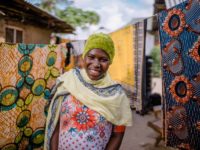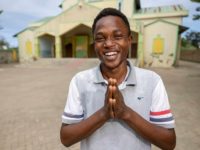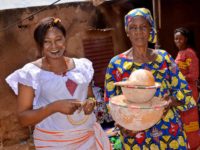We recently gave you the opportunity ask our president, Wess, any questions you like. We’re publishing his transcribed answers one day at a time. Well, today is like yesterday; it’s special. You get two answers.
Read all the posts in the series.
- I noticed you hold a doctorate. I haven’t heard much about that — what did you get it in, and why? Does it help you at Compassion? (Chuck)
My doctorate is from Michigan State University and it is in non-formal education. That is how the poor learn … not in the classroom, not getting credentials, but through practical, functional, hands-on learning. I determined after my time in Haiti that I was not going to work among the poor until I formally studied how the poor learn: How do they take in new information? How do they adapt innovations? How do they change behavior?
My advice is: Don’t get a doctorate just for the credentials. If you’re going to get a doctorate, or even a master’s degree, you ought to ask yourself What is it that am I really passionate about learning in order to use it to change the world? A degree is just icing on the cake. Do not do it for the building up of credentials, as many, many people do.
I am Dr. Stafford, but everybody at Compassion calls me “Wess.” All across Asia I’m “Papa Wess,” which I love. (I think that’s better even than Dr. Wess.) The reason I rarely use my title is, first of all, I didn’t get it for that kind of credentialing reason. But also, I’ve discovered that being introduced as “Doctor so-and-so” builds walls, not bridges.
I use my credentials (being “Dr. Stafford”) if I am dealing with a developing nation and need to get into their department of education or to the president of the country. Wherever I need the title to advance the cause of Compassion, I use it. But I don’t use it around here. I don’t use it among our staff, because my experience is that it doesn’t add anything.
Use the information that that degree gives you, but don’t carry the degree around as some badge.
- What type of master’s program would you recommend for those who want to impact poverty and children in poverty? (Ian Durias)
Whatever your bachelor’s degree was in, if that has gripped your heart, pursue that. Working among the poor now requires all skill sets.
My master’s degree turned out to serve me quite well because it was in communications — it was in broadcasting. Almost anything you do among the poor is either speaking to the poor, which requires a lot of cross-cultural sensitivity, or speaking on behalf of the poor, which requires a lot of communication skills. You can’t miss in education, and I don’t think you can miss in communication.
But if God gifted you in math, study math. Get really, really good at it because as the world gets more and more complex, and the ability to travel gets easier and easier, every skill set, I think, is needed out there to help the poor. Don’t feel like you have to get a degree in social science or early childhood development to be relevant to the poor — you don’t.
Go for the learning and take the degree as icing on the cake. And then don’t use it as a club, use it as a bridge.







0 Comments |Add a comment